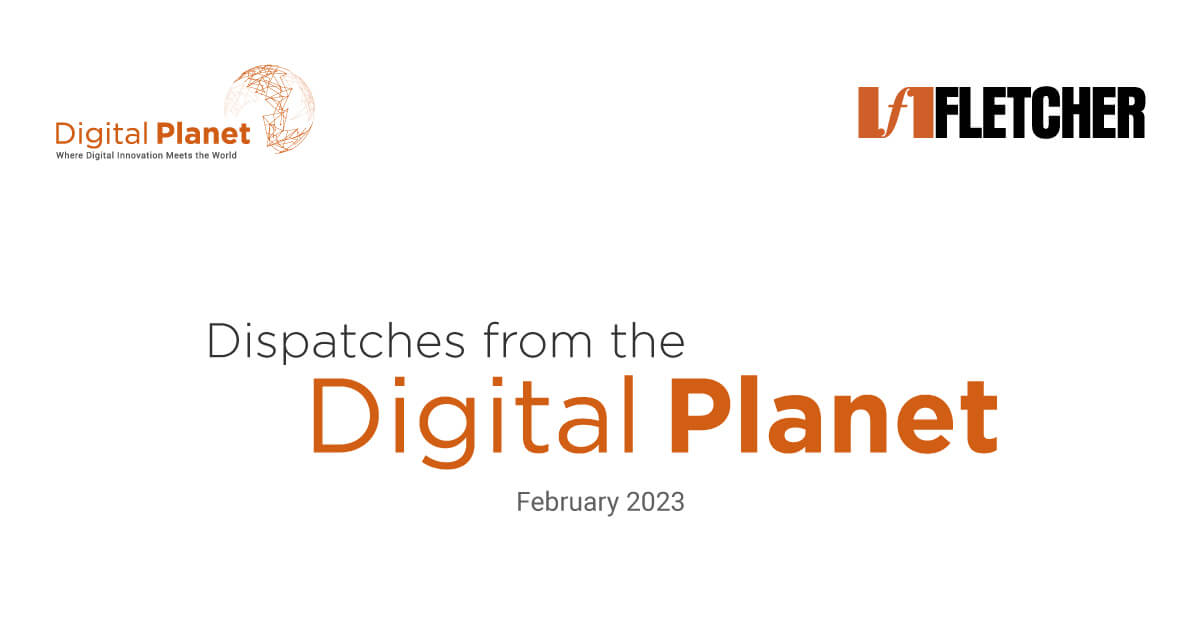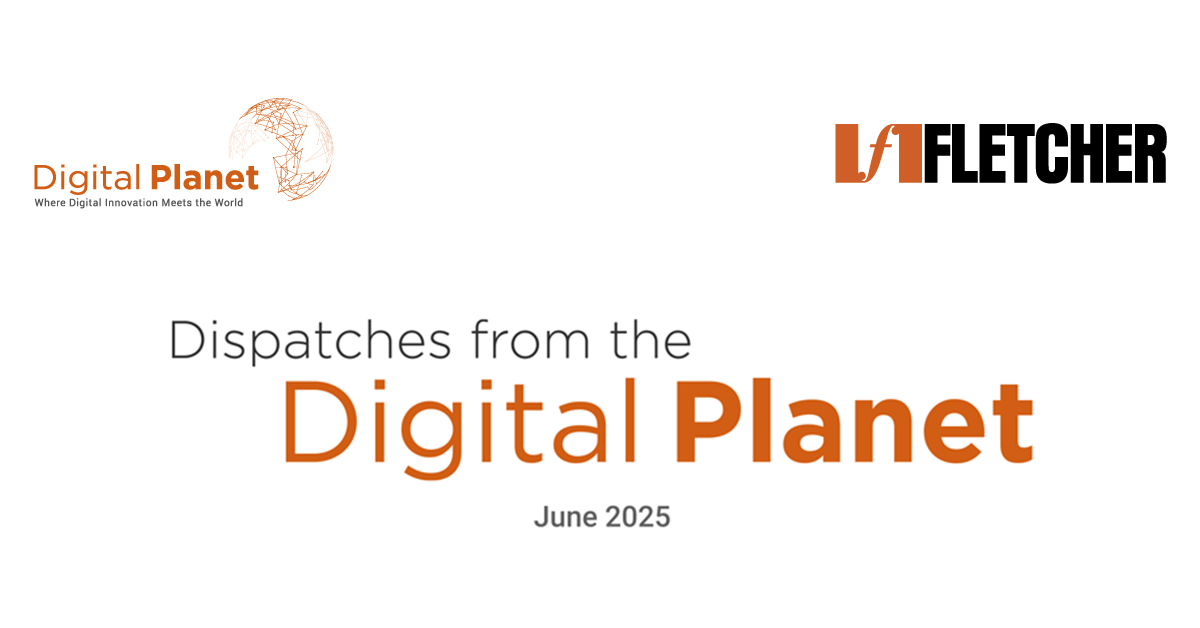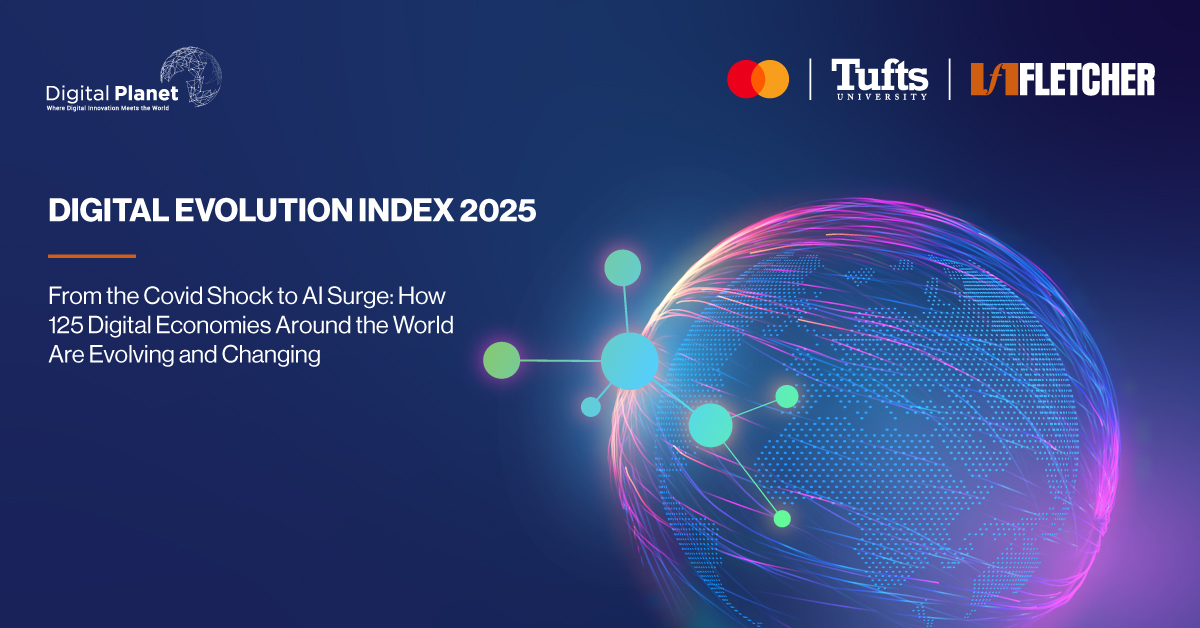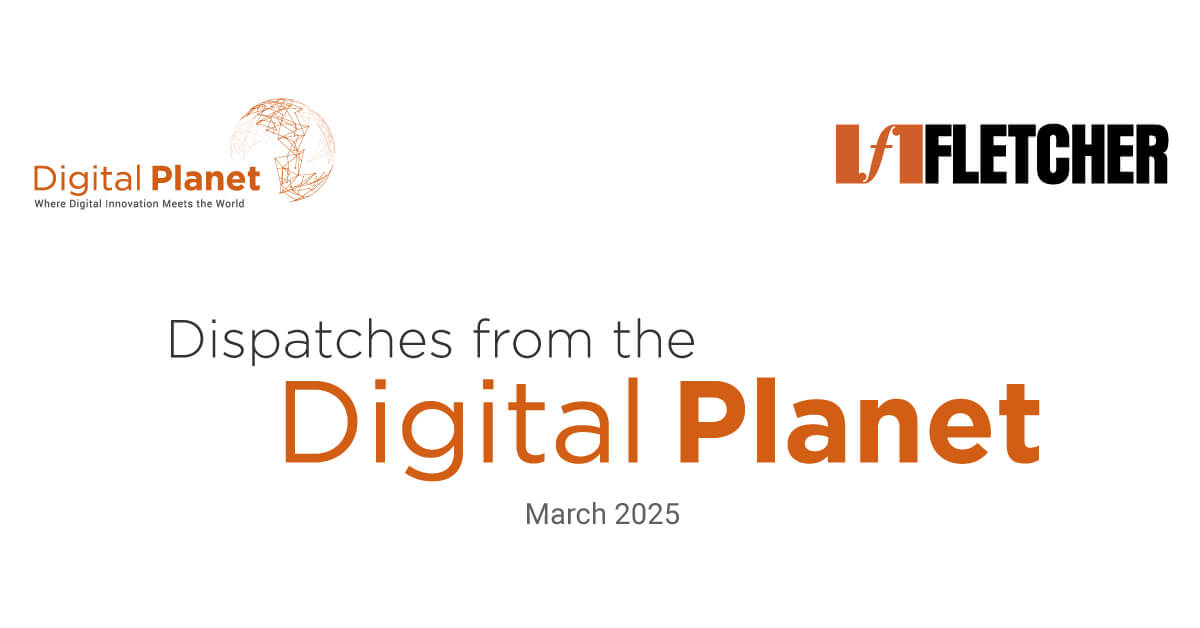|
Dear Reader,
|
|
February marks the beginning of Black History Month, and we are eager to share some of our work at the intersections of diversity and digitalization. With support from the Mastercard Center for Inclusive Growth, we established the Imagining a Digital Economy for All (IDEA) 2030 research initiative, where we explore, among other things, the barriers to and boosters of fair, equitable, and inclusive digitally enabled societies around the world.
|
|
Much of our research on the United States over the years highlights the need for greater inclusion and representation of Black technologists, improved digital access for Black students and families, and enhanced measures in the workplace to ensure the well-being and career advancement of minorities and Black people. While there is much work to be done, we strive to highlight actionable insights that register promising trends and potential for positive change. We’ve synthesized some insights below, but check out our website for more.
|
|
In 2021, we advised companies recruiting STEM talent to look beyond hiring hotspots like Boston and Seattle, which house only a fraction of the Black workforce, to cities like Philadelphia, Baltimore, and Charlotte to attract Black talent. Morehouse and other HBCUs are responsible for a disproportionate number of Black graduates in STEM, but tech recruiting has yet to draw meaningfully from the talent these institutions graduate, so we proposed satellite offices that would allow recruits to work remotely from their home communities. Remote options of this kind would spread opportunities beyond tech hubs which tend to be prone to homophily while minimizing the stress of code-switching and microaggressions in office environments.
|
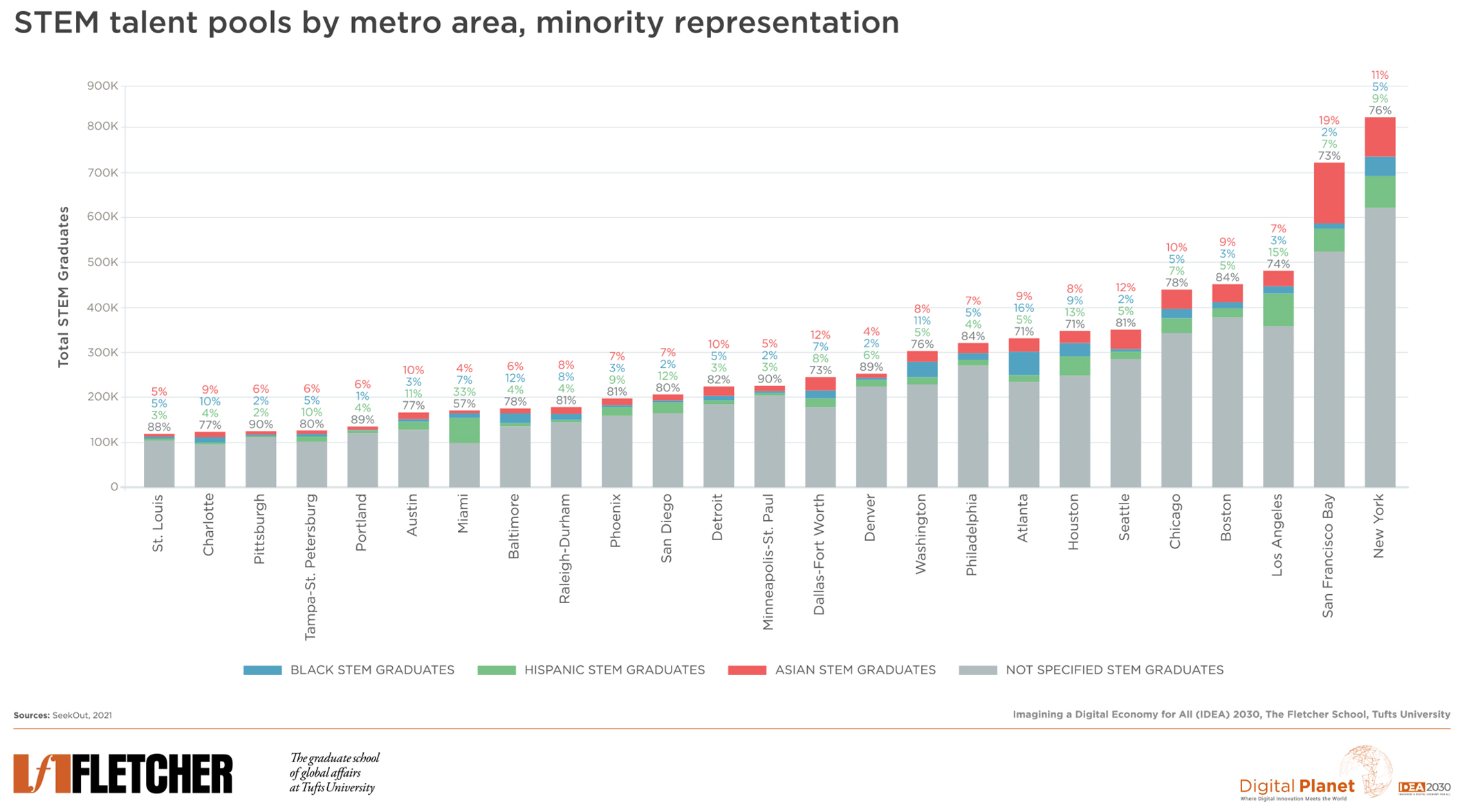
|
|
We found that while cities like Atlanta have a robust digital infrastructure for producing Black tech talent, workers in Houston and other relatively less-connected cities face uneven access to high-speed internet. This unfortunate reality reflects a broader picture of digital injustice, which we monitored as more communities shifted online in response to COVID-19. Our research showed that Black households generally have less access to computers and stable internet across the United States, contributing to underrepresentation in better-paying STEM occupations.
|
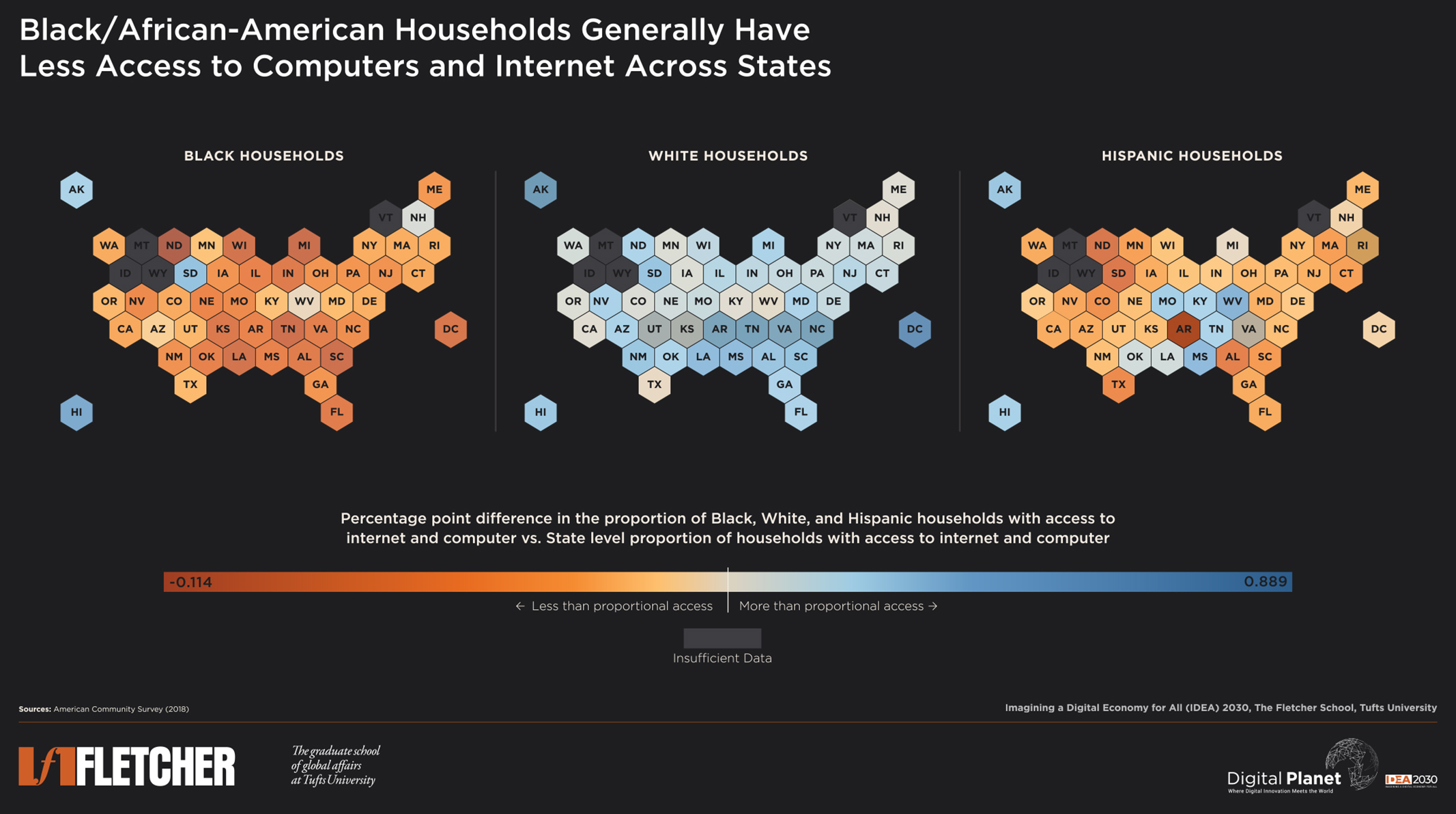
|
|
And while national unemployment fell in the early stages of the pandemic, unemployment for Black workers increased slightly, partly due to over representation in high-touch, lower-paying roles.
|
|
More recently, we noted that companies had made progress on employee diversity—for example, 5.3% of Google’s workforce identified as Black in 2020, a jump from just 2.5% in 2018. But these gains leave considerable room for improvement, as much of the diversity in tech is concentrated at the lower rungs of the corporate ladder. We counted this among the reasons that the Black workforce is susceptible to be disproportionately impacted by tech industry layoffs, emphasizing that companies genuinely committed to diversity can and should resist losses in diversity amid economic downturns. Because Black representation in tech talent pools lags behind all other minority groups, prioritizing retention and career mobility is paramount.
|
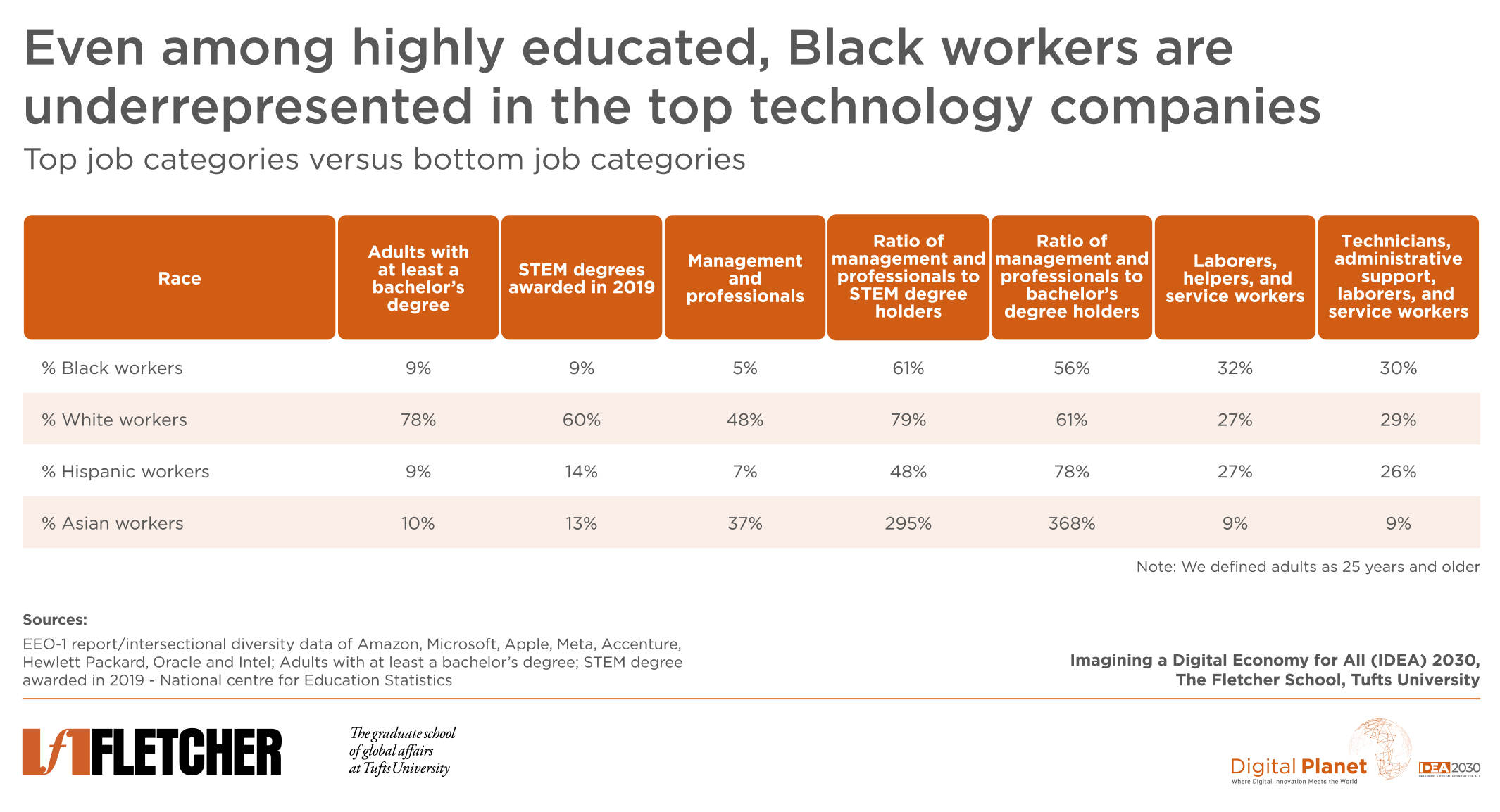
|
|
But even as significant challenges persist, we celebrate the achievement of Black Americans and their dramatic transformation in educational attainment in the decades following the March on Washington. As of 2020, 94% of Black Americans hold a high school diploma—a staggering jump from 27.2% in 1965–and 34% have completed a bachelor’s degree or higher, up from just 3.1% in 1965. Black STEM graduates who find themselves chronically underrepresented in the upper echelons of tech are taking matters into their own hands, becoming entrepreneurs and business owners. And shareholder pressure spurred by activists has motivated third-party audits of racial equity at some of the biggest U.S. companies, including Amazon, Microsoft, McDonald’s, and Citi.
|
|
We are hopeful that the increased focus on holding major tech and finance players accountable for their impact on civil rights will continue to shift the needle on the digital divide. But many growth opportunities are already clear: we reported that there are old boys’ clubs everywhere, effectively barring Black employees from top posts in elite sports, academia, tech, and more. This is especially true for Black female-identifying workers, who face discrimination based on gender and race.
|
|
To combat such inequality at the federal level, we recommended that policymakers consult global leaders on delivering high-quality digital public services as broadly as possible. We’ve created a tool for local, state, and federal policymakers to use to allocate funding more equitably and understand the affordability challenge in communities across the country. We must learn from the past to avoid stumbling into more digital redlining.
|
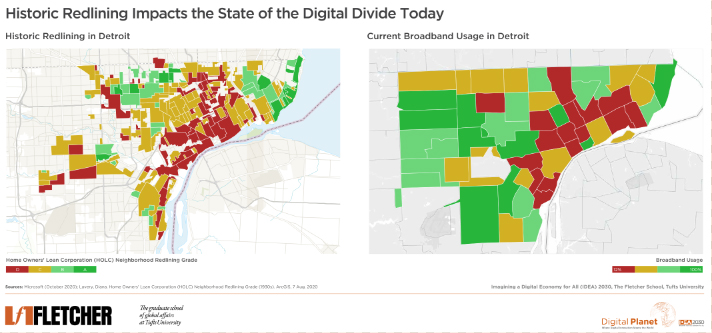
|
|
We are thankful for our bright student analysts, the entire Digital Planet team, and our supporters for their contributions to this research, bringing these important issues to light. While there is a long journey ahead to reach racial equity in the U.S. and globally, we commend everyone working diligently to progress toward this goal.
|

|
Bhaskar Chakravorti
Chair, Digital Planet
|
|
|
|

